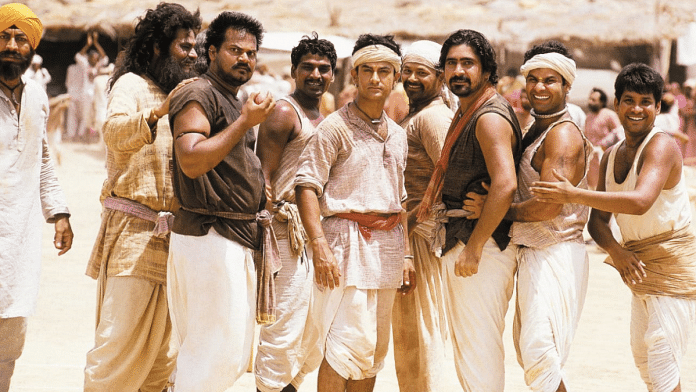Twenty-one years ago, Lagaan led a nationalist wave in Hindi cinema without evoking hate. There’s a lesson in it for Samrat Prithviraj director Chandraprakash Dwivedi and Vivek Agnihotri. Set in colonial India, the Aamir Khan-starrer, directed by Ashutosh Gowarikar, is often considered a too-good-to-be-true account of a local cricket team led by a confident and enthusiastic Bhuvan who defeats the British in a match because it was a do-or-die situation for them.
It’s the story of India’s romance with cricket. The movie successfully exploited — for the lack of a better word— India’s pride in excelling in cricket. I’ve always thought that the sentiment attached to the game is more than a function of the market. When won the World Cup in 1983, advertisers shifted their attention to cricket, and sponsors rallied behind them.
For Indians, the charm of being so good at cricket is that we’re the best at their game. The game of the ‘goras’.
That’s why the 2002 victory at Lord’s Cricket Ground with a shirtless Sourav Ganguly is as priceless as any trophy that the Indian team will ever lift. Kapil Dev lifting the trophy in 1983 with an underdogs’ team in England, less than 40 years after Independence, catapulted the game to the status it has today.
Also read: Lagaan turns 21: See how the star cast looks now
Beating them at their own game
As I write this in my coloniser’s language, I wonder how much my generation feels scarred by the fact that we were under an imperialist British regime just less than 100 years ago.
Lagaan strikes a chord for every Indian — the sentiment lies somewhere at the back of our heads. It’s our generational trauma. It is a film that was successful in evoking strong collective sentiment against British colonists in a way no other fictional piece of work was able to.
And Lagaan does it with a script that is neither hyperpatriotic nor nationalist. These are the same emotions that Akshay Kumar and Co. had hoped to tap into with their recent flop Samrat Prithviraj (2022). The Kashmir Files (2022) also attempted the same with hate, only Lagaan did it using love.
As nationalism has become a big market for our Hindi filmmakers, they should take a page from this legendary film on how to do it right.
Also Read: Aamir Khan was the OG method actor. Problem started when he turned to comedy
The scars of colonialism
Lagaan deftly played up insults hurled by the ‘gora’ Babu on the Indian peasants to sweeten the latter’s victory at the end. Indeed, the story is completely fictional, but it still makes people search the internet for ‘facts’ — the dynamics of the time were perfectly captured by Gowarikar and put on screen in a way that made us swell with rage.
From “Tum saala ghulam log hamesha hamari jooti ke neeche rahega”, to the ‘raja’, quietly celebrating the boundaries and the wickets taken by the gaon walas to Bhuvan standing up to a bully heroically, the movie made Indians squirm. We don’t sit and think about how we were racially abused and exploited by the imperialist regime, and Lagaan opened wounds that we didn’t know were there. A white Oscar jury will never be able to understand this emotion while reviewing the movie.
Contrast the plot of Lagaan against what actually happened in India. Then-British Prime Minister Winston Churchill let millions die and did nothing to mitigate the effects of famine in West Bengal. Major General Andrew Russel wanted “2 goona lagaan” — twice the tax — despite the village suffering from drought for almost a decade. That he was willing to let go of the tax by manipulating a young man’s ego and encouraging him into taking up an impossible task further reveals the barbaric and the unempathetic way in which the British governed us.
Paul Blackthorne as Captain Andrew Russel was the perfect firangi to hate. The climax scene where he catches the ball with Bhuvan on strike, without realising he has crossed the boundary, is a frame crystalised in Hindi cinema’s memory.
Views are personal.
(Edited by Humra Laeeq)



